2017, Titan Comics
Writer: Fabien Nury
Artist: Thierry Robin
The Death of Stalin begins with a most telling disclaimer: “Although inspired by real events, this book is nevertheless a work of fiction: artistic license has been used to construct a story from historical evidence that was at best patchy, at times partial, and often contradictory … it would have been impossible for [the authors] to come up with anything half as insane as the real events surrounding the death of Stalin.”
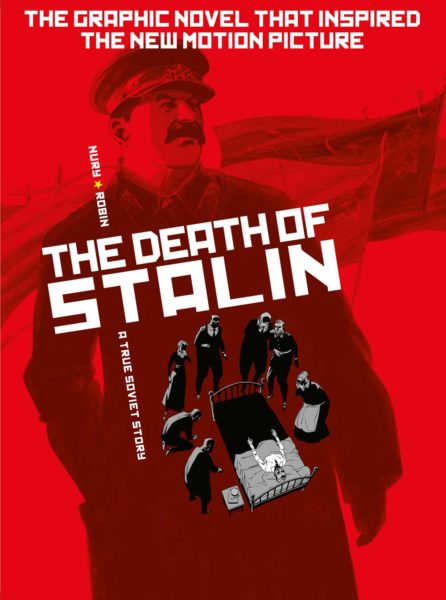
I’m a big fan of such candour when it comes to biographies or anything purporting to be “based on a true story”, and this warning of sorts was most appreciated. Regardless of how accurate their account may be, Fabien Nury and Thierry Robin have created a political satire that is hard to pin down in terms of tone, one that feels timeless yet timely, particularly given the incohesive state of western politics with its brazenly false promises and “fake news” propaganda.
The book also serves to depict a small point in history that I knew very little about: the final two days of Joseph Stalin, through which the Soviet dictator lay comatose following a stroke on March 2nd 1953. The power struggle that ensues his collapse would be implausible were it not so very human. As Stalin lies dying, his core team of ministers do not call for immediate help, but instead gather for supper while they struggle to reach a unanimous decision on potential doctors.
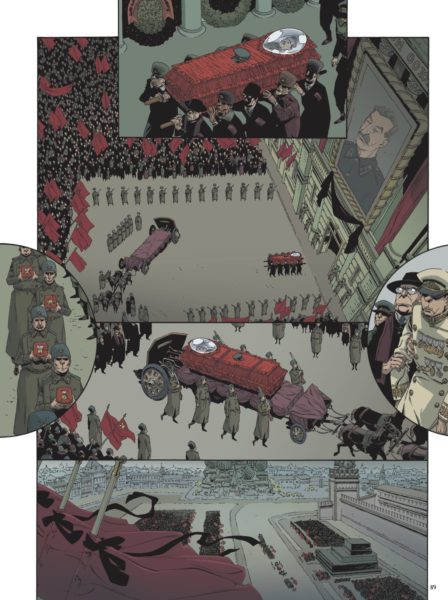
This a satire that, from the first page to the last, teeters on the brink of full-on parody, but Nury nimbly avoids letting his retelling ever fall firmly into any such territory. The Death of Stalin is a dark comedy that isn’t laugh-out-loud funny, and is all the more impressive for it, though its events are undeniably absurd.
Take, for example, the rather brilliant prelude, in which the Radio Moscow orchestra receives message that Stalin enjoyed their live broadcast and would like a recording of it. Much to the group’s dismay no recording was made, so the musicians work tirelessly though the night to recreate the exact same performance, aware that both refusal of a recording or a recording that is discernibly different than the one enjoyed by the “Father of the People” will likely result in one way trips to the gulag.
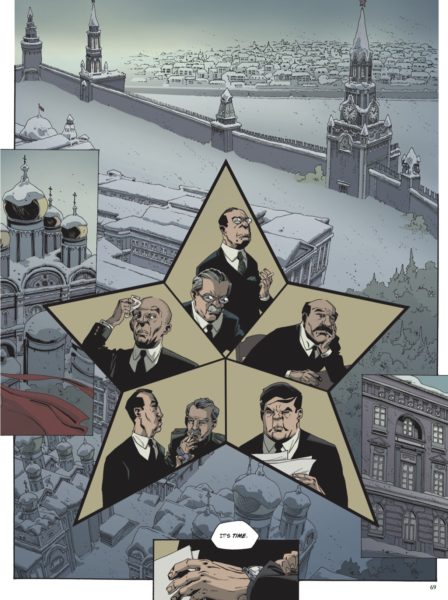
This palpable tension laces every Machiavellian act committed or considered by Nury’s political players, and while the narrative doesn’t focus too heavily on how Stalin’s cult of personality remained in the hearts of the Soviet people beyond his death, there are a few scenes towards the end that, as with the rest of the book, are expertly handled and sidestep any sense of melodrama.
Thierry Robin’s art also maintains a similarly delicate balance between the humorous and the sombre. His characters are exaggerated enough to make them distinguishable, but, with the exception of Minister of Home Affairs and chief schemer Lavrentiy Pavolich, they rarely feel like caricatures. The book is visually striking and unexpectedly cinematic; just look at some of the fine page compositions featured in this here review. Given its subject matter, what surprised me most about Death of Stalin was just how much of a joy it was to read.
https://youtube.com/watch?v=evaGkjk5tNM
I’ve done my best to refrain from mentioning the upcoming Armando Iannucci movie adaptation of Stalin, which is probably the reason most people will buy the graphic novel, or indeed find this review. The mind behind In The Loop, Veep and Alan Partidge is perfect for Nury’s material, I just hope that the adaptation doesn’t overshadow a notable achievement in comic book storytelling.
To return to the aforementioned disclaimer that precedes the book, whether the events depicted within The Death of Stalin actually happened or not I do not know. In all fairness, I’m not sure I care. The book works best when received as a grim satire on the corruption of absolute power and the inhumanity of leadership within a power vacuum, as well a powerful parable on how totalitarian regimes such as Stalin’s, built on fear, insecurity and insincerity, can topple with but the gentlest push.
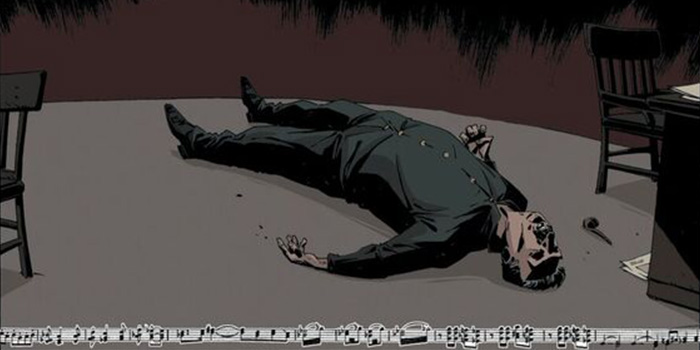
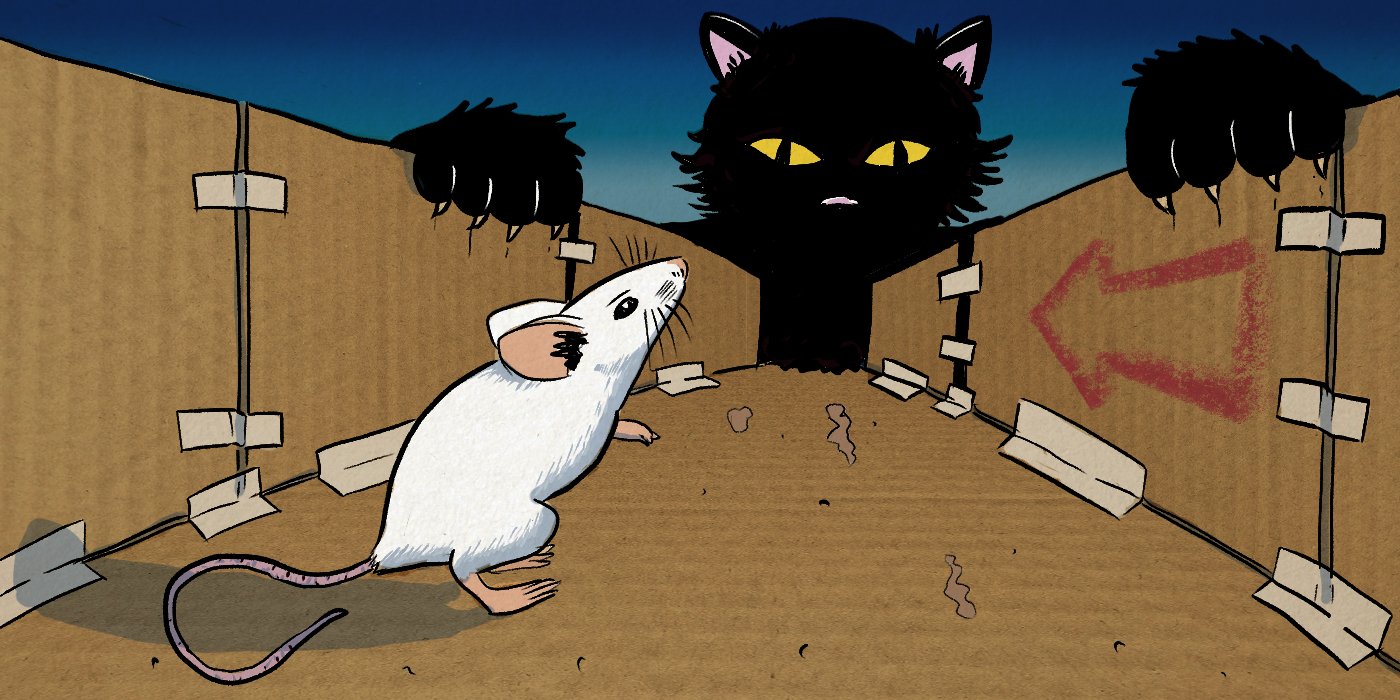
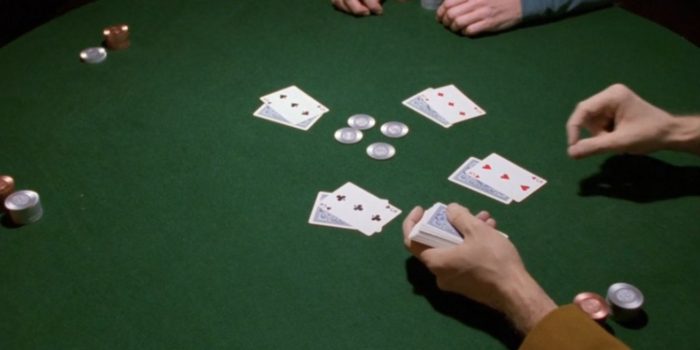






Leave a Reply